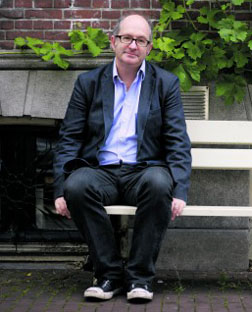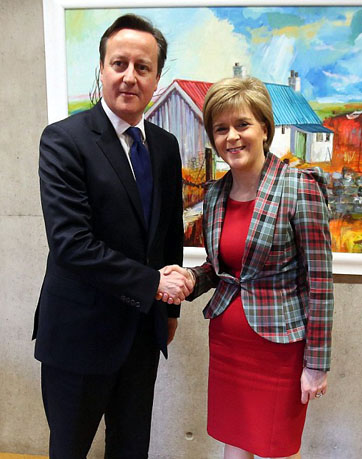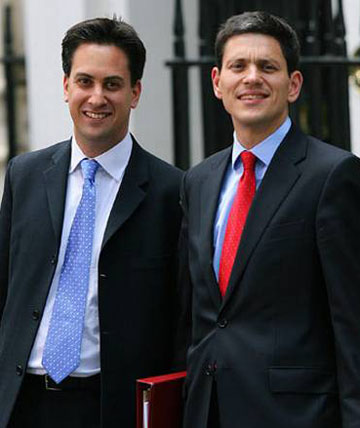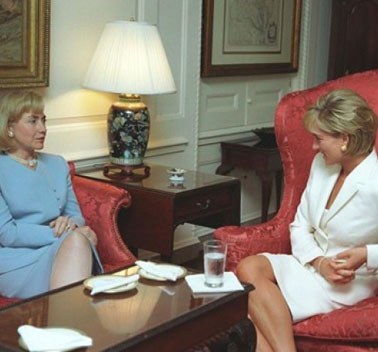
John Lanchester/ Foto Rogers Cremers — our man in the London Review of Books : on the British election.
Six days ago under the heading “British election” I wrote “I’m waiting for John Lanchester to tell me what is finally going to happen here in the LRB blog …”
I also noted that “even though the Scottish independence referendum lost last September, the UK is nonetheless changing … So far at least this 2015 general election to the old Mother of Parliaments seems to be underlining the change rather darkly.”
Well … Lanchester has now told us what has happened. And though there has been a big surprise for almost everyone, “underlining the change rather darkly” still seems apt.
Lanchester’s LRB blog posting yesterday confessed that, as election night TV coverage got underway, the “first line of the BBC announcement, ‘Conservatives largest party’, was no shock. Then there was a pause a few seconds long, and the projection of 316 Tory seats came up. I nearly fell off my chair. From that point on, the surprises only got bigger.”

Conservative PM David Cameron met with Scottish National Party leader Nicola Sturgeon in January this year, “to discus further devolution to Scotland,” whatever that may mean exactly, especially now after the May 7 election!
In the end David Cameron’s Conservatives won less than 37% of the popular vote.
However, as we can also appreciate in Canada, with more than two significant parties and a first-past-the-post electoral system, that was enough to give Cameron a modest but working majority of 331 seats in a 650-seat House of Commons.
Both Labour and especially the Liberal Democrats did markedly worse than the pre-election opinion polls had predicted. If anything the Scottish National Party (SNP) did even better.
Labour took not much more than 30% of the popular vote and only 232 seats (almost 100 less than the Tories). The SNP, which won all but three seats in Scotland, was one villain here. Yet, as Lanchester has also explained : “If Labour had retained all of their 41 Scottish seats, the Tories would still be the majority government.”

Some said David Miliband (r) rather than his brother Ed (l) should have become Labour Party leader. Maybe they were right?
Compared with the last election in 2010, Labour actually improved its vote overall in England.
But, in Lanchester’s words, this “was driven by success on their own turf: 3.5 per cent increase in the North East, 6 per cent in the North West. Where there was a genuine contest with the Tories, the Tories did better … The Tories out-campaigned Labour in the places where they needed to.”
This sounds similar to something I heard on BBC TV last night more than once. Ed Miliband’s Labour Party spent too much time and energy appealing to their own base.
They didn’t reach out enough to the potential voters beyond their base who they also needed to succeed. Or, as I think someone says somewhere in some Chicago community organizing handbook, in any big democracy you can’t win with just your own people.
* * * *
Meanwhile, back here in Canada — former first self-governing dominion of the old global empire on which the sun never dared to set, etc, etc — should Conservative PM Harper be taking heart from the new Conservative majority government in the UK?
Frankly, I of course don’t know! I am close to certain, however, that yesterday’s British election is not at all as important in this respect as this past Tuesday’s Alberta election in Canada, which was equally surprising in an opposite direction.
In any case I have finally been struck by another and undoubtedly much more minor sign of the new diversity and complexity in British politics, which hopefully will not lead to some perpetual reign of Conservative majority governments in the Mother of Parliaments.
(Though again I don’t know that even this would have any vast impact on life in Canada today. As Melissa Dunne has recently explained in an article on the latest British royal baby : “While we are now the True North strong and free … Canada is still a constitutional monarchy and our head of state is technically Queen Elizabeth.” Yet to say something is technically true is also to say that it is not really true. And in fact it is not really true that even such an admired British monarch as Queen Elizabeth II personifies what our Constitution Act 1982 calls the “free and democratic society” in Canada today. That task has now fallen to the Canadian people.)
Getting back to the new diversity and complexity in British politics, if you go to The Guardian’s election results page online, you are bound to be almost staggered by the sheer number of political parties participating in the May 7, 2015 general election.
It is true that the six largest parties — Conservatives (37%), Labour (30%), UK Independence Party (13%), Liberal Democrats (8%), Scottish National Party (5%), and Green Party (4%) — accounted for close to 97% of all ballots cast yesterday.
But it says something almost reassuring (as well as a little wild and crazy) that more than 125 other parties were competing for the remaining 3% + of the people’s vote.

George Orwell and his adopted son Richard, 1949. What would he advise the Labour Party to do these days?
Some of the names of these parties remind you that this is also the land of Benny Hill, Beyond the Fringe, Charles Dickens, Coronation Street, Falstaff, Fawlty Towers, Monty Python, On the Buses, The Thin Blue Line, Tony Hancock, and on and on and on.
Consider, eg, this personal Top 20 short list of very minor parties in the 2015 UK general election, in alphabetical order :
Al-Zebabist Nation of Ooog
Bournemouth Independent Alliance
Cannabis is Safer than Alcohol
Children of the Atom
Class War
Digital Democracy
Justice For Men & Boys
Lincolnshire Independents
Magna Carta Party
Manston Airport Independent Party
Monster Raving Loony Party
National Health Action Party
No description
People Before Profit
Pirate Party UK
The Birthday Party
The Eccentric Party of Great Britain
Vote Elmo
Wigan Independents
World Peace Through Song.
So … who knows just where the also surprised Conservative majority PM David Cameron will finally try to lead the still United Kingdom of England, Scotland, Wales, and Northern Ireland over the next number of years? And who knows what will happen to the Labour Party and the cause of progress in the Mother of Parliaments generally? In the end I wonder : would George Orwell be happy about the UK today? I can’t help thinking probably not. And the political, economic, spiritual (religious?), and cultural logic here may be what the heroic old Labour Party somehow needs to rediscover!



























